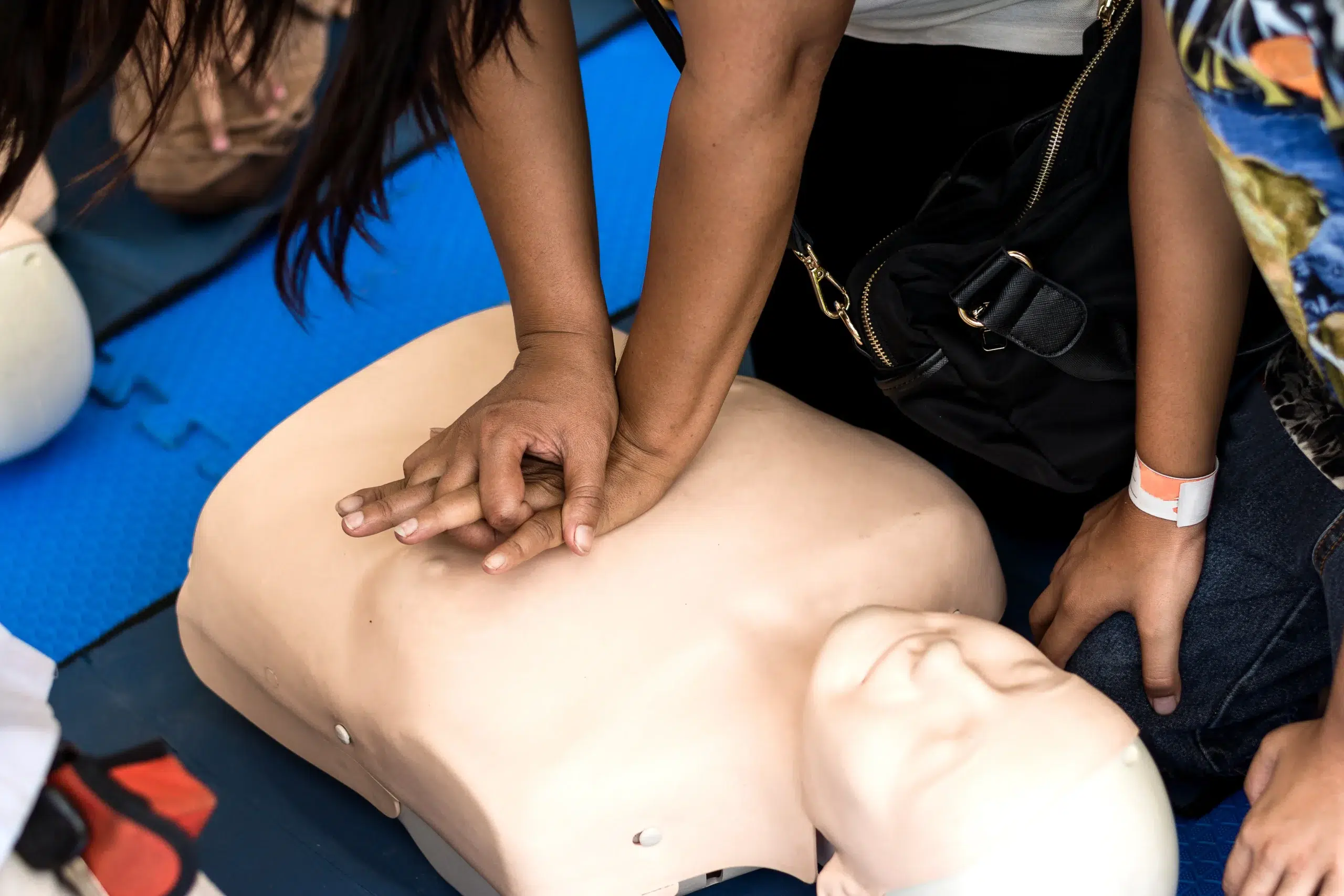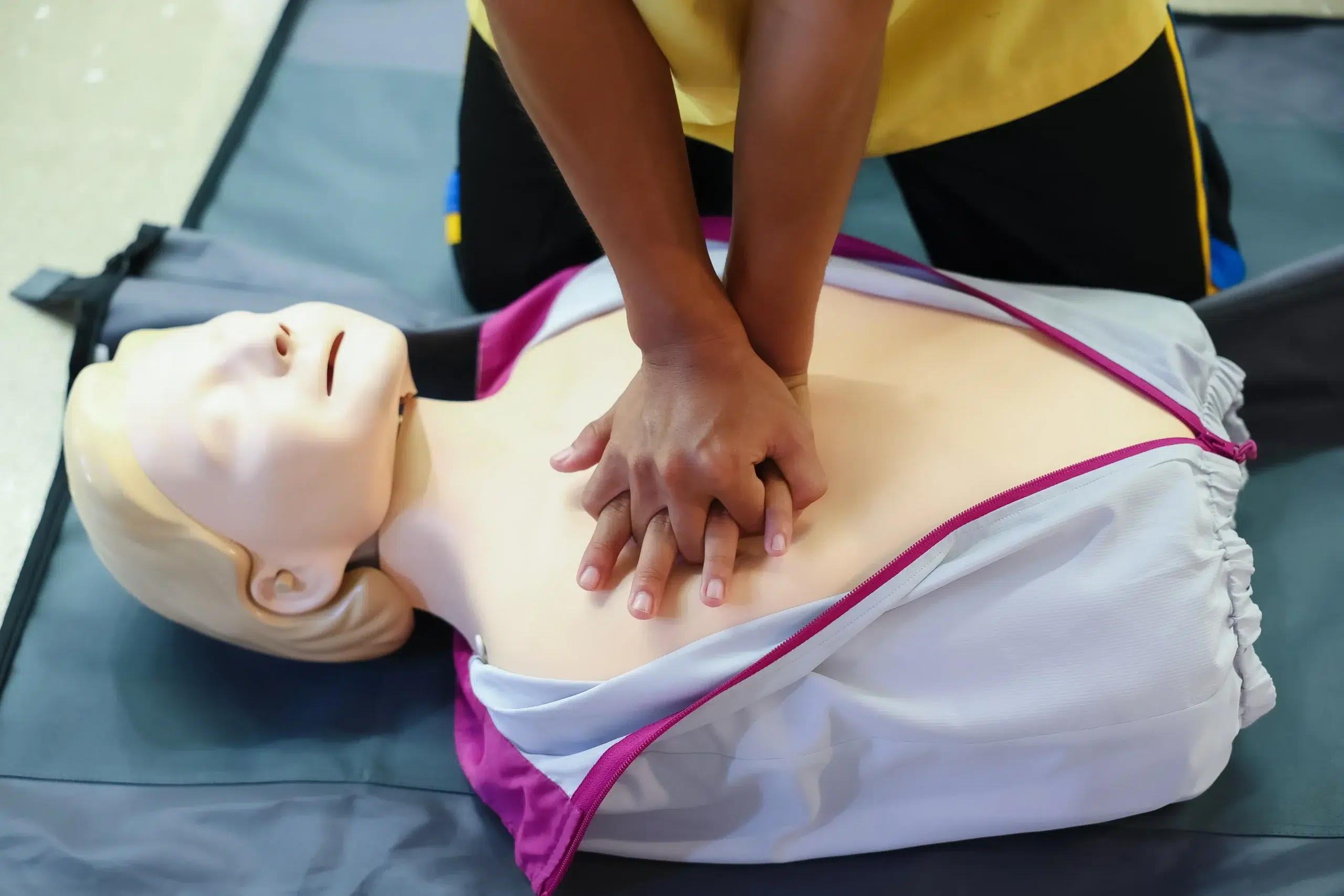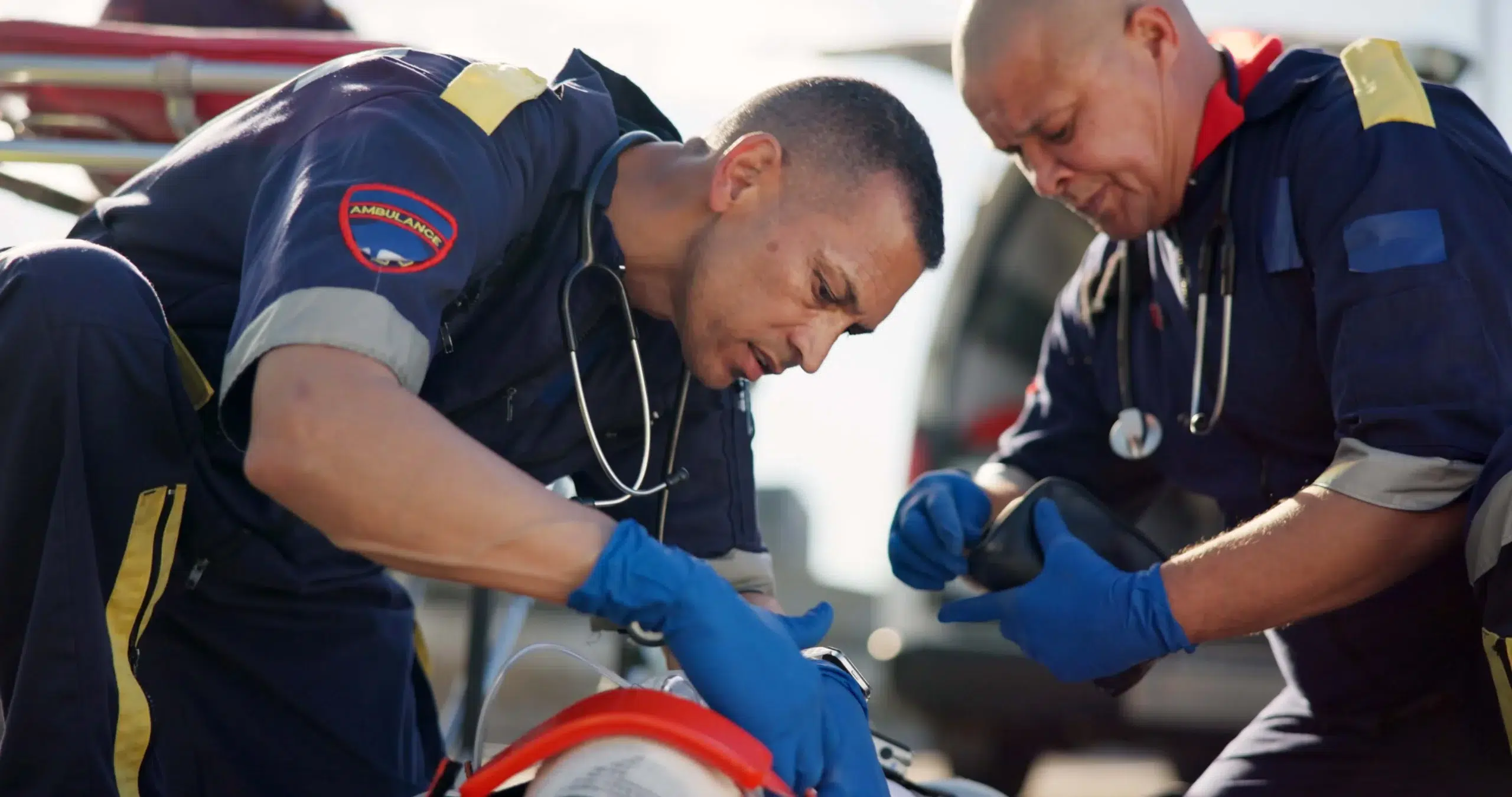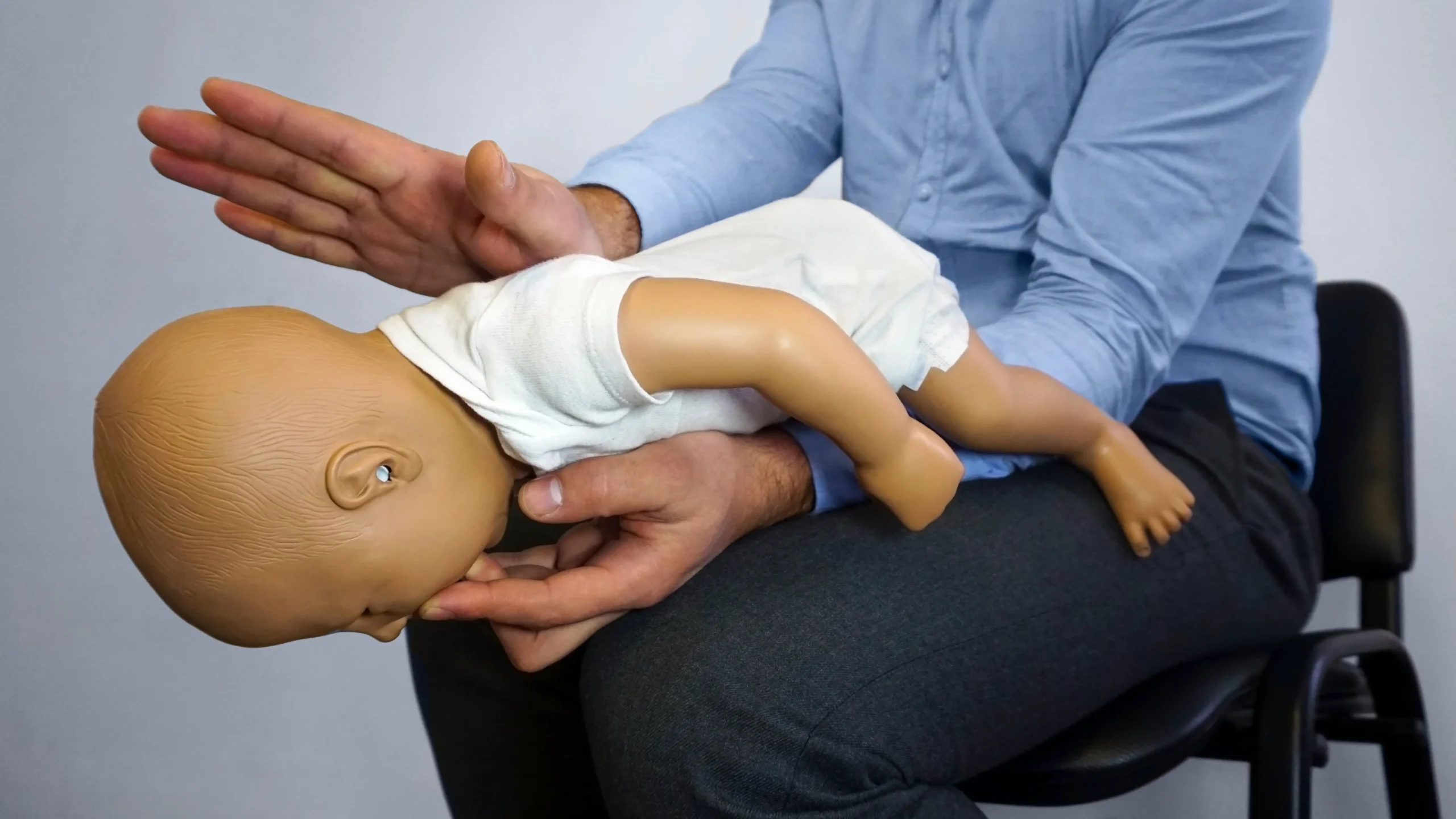Balancing a busy healthcare career with ongoing training requirements can feel overwhelming. PALS HeartCode in Newark offers a streamlined approach to maintaining your Pediatric Advanced Life Support skills. This blended learning format allows you to complete the cognitive portion online, fitting the training around your schedule, followed by an in-person skills session to refine your practical abilities. This post will cover everything you need to know about PALS HeartCode in Newark, from course structure and benefits to finding the right training center and managing the cost. We’ll also discuss the importance of staying current with your PALS certification for career growth and providing the best possible care.
Key Takeaways
- PALS HeartCode blends online learning with hands-on practice: This approach allows you to learn at your own speed and then demonstrate your skills in person.
- Several training centers in Newark offer PALS HeartCode: Research different providers to find the best fit for your schedule and budget. Consider factors like location, cost, and available dates.
- Staying current with your PALS certification is essential for healthcare providers: Regularly renewing your certification ensures you have the most up-to-date knowledge and skills to handle pediatric emergencies.
What is PALS HeartCode?
Defining PALS HeartCode
PALS HeartCode is the American Heart Association’s blended learning course for Pediatric Advanced Life Support. This approach combines online learning with a hands-on skills session. You’ll complete the cognitive portion of the course online, working through interactive modules and simulations at your own speed. This means you can study when and where it’s most convenient, fitting the training around your schedule. After finishing the online portion, you’ll attend an in-person skills session to practice and demonstrate your knowledge.
Key differences from traditional PALS
Traditional PALS courses are typically instructor-led in a classroom setting. While effective, this format requires everyone to learn at the same pace. PALS HeartCode offers more flexibility. Both HeartCode and traditional PALS courses cover the same core material and meet the same AHA standards—the key difference is the delivery method. If you prefer a self-directed approach and appreciate the convenience of online learning, PALS HeartCode might be a good fit. If you thrive in a traditional classroom environment and value direct interaction with an instructor, a traditional PALS course may be more suitable. Safety Training Seminars offers both options, so you can choose the format that best suits your learning style.
Benefits of blended learning
The blended learning format of PALS HeartCode offers several advantages. The online portion allows for personalized learning, adapting to your pace and focusing on areas where you might need extra support. This personalized approach helps you learn more effectively and retain the information. Plus, the flexibility to study anytime, anywhere, makes it easier to fit the training into a busy schedule. The hands-on skills session reinforces your online learning, allowing you to practice essential techniques in a realistic environment. This combination of online learning and practical application creates a well-rounded learning experience.
Find PALS HeartCode Courses in Newark
Finding the right PALS HeartCode course in Newark means understanding what each training center offers. Here’s a rundown of local providers to help you get started:
Safety Training Seminars
Safety Training Seminars offers accessible PALS HeartCode training in Newark. They understand online certification is just as valid as in-person, offering flexibility for busy professionals. Learn more about their PALS HeartCode program and other courses like CPR and First-Aid certification. They also offer discounted group classes, a cost-effective option for teams. Check their BLS course schedule to see what’s available. Safety Training Seminars prioritizes affordability with their low price guarantee.
RWJBarnabas Health Training Center
RWJBarnabas Health (RWJBH) offers various healthcare training courses, including PALS. With classes at several locations, including Newark Beth Israel Medical Center, they provide convenient options. Visit their course enrollment page for PALS course details and schedules. RWJBH also keeps their training current, adhering to the 2020 AHA Guidelines for PALS.
HealthForce Training Center
HealthForce Training Center provides a comprehensive PALS HeartCode program, including the online course, exam, practice, and skills test. This blended learning approach ensures thorough training. Explore their PALS program and other offerings.
University Hospital Community Training Center
The University Hospital Community Training Center (CTC) offers various American Heart Association courses, including PALS, to both hospital affiliates and the public. This makes it a valuable resource for PALS training in Newark. Visit the Community Training Center page for more information.
CPR Training Center
While not specifically mentioned in our initial research, exploring general CPR training centers in Newark can be helpful. A quick search for “CPR Training Center Newark” might uncover additional local resources, giving you a wider range of options.
Cost of PALS HeartCode in Newark
When considering PALS HeartCode training, understanding the cost is essential. Let’s break down the typical expenses and explore how Safety Training Seminars offers accessible options.
Average course pricing
In Newark, the PALS HeartCode course typically starts around $100. This covers the hands-on skills session, where you’ll apply the knowledge you gained online. This fee doesn’t include the online portion of the PALS HeartCode course, which you’ll need to complete beforehand. Remember to bring a printed copy of your PALS HeartCode Completion Certificate to the skills session. For more information on pricing and registration, visit Training Center Technologies.
Safety Training Seminars’ low price guarantee
Safety Training Seminars understands the importance of affordable training. Our low price guarantee ensures you receive high-quality PALS HeartCode training at a competitive price. One of the biggest advantages of the PALS HeartCode program is its flexibility. You can complete the online portion at your own pace. This is a significant advantage over traditional PALS courses, which often have fixed in-person schedules.
Group and student discounts
We offer discounts for groups and students to make PALS training more accessible. Contact us to discuss your needs and explore how our group and student discounts can fit your budget. Other providers, like HealthForce Training Center, also offer customized training and potential discounts, so exploring different options is always helpful.
Value for healthcare professionals
The PALS HeartCode course offers significant value. The content aligns with the latest science in the 2020 AHA Guidelines Update for CPR and ECC. This ensures you receive current training, making PALS HeartCode not just a valuable certification but a crucial component of professional development in emergency care. For more details on the PALS course and its importance, visit this resource.
Who Needs PALS HeartCode?
Target audience and prerequisites
PALS HeartCode is designed for healthcare providers who regularly work with infants and children. This includes physicians, nurses, paramedics, respiratory therapists, and other professionals involved in pediatric emergency care. Anyone seeking initial PALS certification or recertification can take the PALS HeartCode course. One important thing to note is that some courses, like PALS HeartCode, require you to complete an online portion before attending the in-person skills session. Make sure you understand the requirements and give yourself enough time to finish both parts.
Career benefits
PALS certification demonstrates a commitment to providing high-quality pediatric care. It’s not a one-time thing; maintaining your PALS certification shows you’re dedicated to continuous learning and improving your skills. This can significantly enhance your career prospects and open doors to more specialized roles. Plus, the blended learning format of HeartCode PALS offers valuable flexibility, allowing you to complete the online portion at your own pace.
Addressing course misconceptions
There are a few common misconceptions about PALS and PALS HeartCode training. Some people believe online PALS certification isn’t as valid as in-person training, but this isn’t true. The online portion provides the same comprehensive knowledge base, and the required in-person skills session ensures you can apply that knowledge effectively. Another misconception is that PALS courses only focus on CPR for children. PALS training covers a much broader range of skills, including recognizing and managing cardiac arrest, respiratory distress, and shock in infants and children. It equips healthcare providers with the knowledge and skills to handle various pediatric emergencies.
PALS HeartCode Structure and Duration
PALS HeartCode blends online learning with a hands-on skills session, offering a flexible and comprehensive learning experience. This approach lets you learn the course material at your own pace before demonstrating your skills in person.
Online Component Breakdown
The online portion of the PALS HeartCode training covers the cognitive aspects of pediatric advanced life support. This self-directed learning uses interactive modules, case studies, and simulations to reinforce key concepts. While traditional PALS courses often involve in-person lectures, HeartCode PALS lets you complete this part of the course online at your convenience. You’ll work through the modules at your own pace, reviewing material as needed.
Hands-on Skills Session Details
After completing the online modules, you’ll attend a hands-on skills session with a certified PALS instructor. This in-person session focuses on practical application and allows you to demonstrate the skills you learned online. Both the HeartCode and traditional PALS courses require this in-person skills check-off, ensuring all participants meet the same standards. Remember to bring a printed copy of your HeartCode PALS Course Completion Certificate to your skills session, as this verifies your completion of the online portion. Check out our PALS courses in Newark for more information.
Total Time Commitment
The online portion of the PALS HeartCode course typically takes six to nine hours to complete, depending on your existing knowledge and clinical experience. The in-person skills session is much shorter. This blended format allows you to dedicate focused time to online learning while minimizing time away from work or other commitments for the in-person session.
Prepare for Your PALS HeartCode Course
Getting ready for your PALS HeartCode training involves a few key steps. Since the course blends online learning with hands-on skills practice, preparing for both parts is essential. Let’s break down how to get ready for each component.
Required Materials
Before heading to your in-person skills session, double-check you have a printout of your PALS HeartCode Completion Certificate. This certificate verifies you’ve completed the online portion and is required for the skills check-off. It’s your ticket to the hands-on part of the course.
Study Strategies for Online Learning
One of the best aspects of PALS HeartCode’s blended learning format is its flexibility. You can work through the online modules at your own pace, revisiting any sections that need extra attention. This self-directed structure lets you absorb the material effectively, preparing you for the skills session. Set aside dedicated study time and create a comfortable, distraction-free study space.
Tips for the Skills Session
Whether you choose the blended learning PALS HeartCode course or the traditional in-person class, both include a hands-on skills check-off with a certified instructor. This guarantees everyone meets the same American Heart Association standards and receives the same PALS Course Completion Card. To feel confident, review and practice the skills from the online modules before your skills session. This extra practice will make the in-person session smoother. The 2020 AHA Guidelines have been updated, so ensure your training aligns with the latest recommendations. Our PALS courses at Safety Training Seminars always use the most current guidelines.
Maintain Your PALS Certification
Renewal process
PALS certification isn’t a lifetime achievement—it expires every two years. This renewal requirement ensures your skills stay sharp and your knowledge remains in line with the latest American Heart Association guidelines. Don’t let your certification lapse! Check your card for the expiration date and mark your calendar with a reminder a few months before it expires. This gives you plenty of time to find a course that works for you.
Continuing education
Medicine is a constantly evolving field, and pediatric advanced life support is no exception. The AHA regularly updates its guidelines, incorporating the latest research and best practices. Staying current with these updates is crucial for providing the best possible care. When you recertify, you’ll review these updates, ensuring your skills reflect the most effective methods for treating pediatric emergencies. For example, the AHA’s PALS Course was updated to reflect new science in the 2020 AHA Guidelines Update for CPR and ECC.
Importance of current skills
PALS certification goes beyond basic CPR for children. It equips you with the skills to recognize and manage a range of life-threatening pediatric emergencies, from cardiac arrest and respiratory distress to shock. These situations demand quick thinking and decisive action. Regularly refreshing your skills through recertification helps you maintain the confidence and competence to respond effectively in stressful situations. This benefits the children in your care and provides peace of mind knowing you’re prepared. PALS courses cover a wide range of skills essential for managing pediatric emergencies.
Career growth with PALS
Maintaining a current PALS certification demonstrates your commitment to professional development and high-quality patient care. This can be a significant advantage in healthcare. Many employers require current PALS certification, and it can create new opportunities. Whether you’re a nurse, doctor, or other healthcare provider, staying up-to-date with your PALS certification can enhance your career. Blended learning options like HeartCode PALS combine online learning with in-person skills practice, making it easier to fit recertification into your schedule.
Related Articles
- PALS HeartCode Fremont: Your Certification Guide – Newark CPR Classes
- Your Guide to ACLS HeartCode in Newark – Newark CPR Classes
- AHA PALS Classes in Newark, CA – Newark CPR Classes
- Online PALS Classes in Newark: The Complete Guide – Newark CPR Classes
- Pediatric Advanced Life Support (PALS) in Newark – Newark CPR Classes
Frequently Asked Questions
What exactly does the PALS HeartCode training cover? PALS HeartCode covers the same comprehensive material as a traditional PALS course, adhering to the latest AHA guidelines. It equips healthcare providers with the knowledge and skills to manage pediatric emergencies, including cardiac arrest, respiratory distress, and shock. The key difference lies in the delivery method: HeartCode blends online learning with a hands-on skills session.
How long does it take to complete the PALS HeartCode course? The online portion typically requires 6-9 hours, depending on your learning pace and prior experience. The in-person skills session is significantly shorter, usually taking a few hours. This blended format allows for flexibility, letting you complete the online modules at your convenience.
Is online PALS certification as valid as in-person training? Absolutely! The online portion of PALS HeartCode provides the same comprehensive content as a traditional course. The required in-person skills session ensures you can apply your knowledge effectively, meeting the same AHA standards. Upon successful completion of both components, you’ll receive the same PALS Course Completion Card.
What if I have a busy schedule? How can I fit PALS training in? The blended learning format of PALS HeartCode offers significant flexibility. You can complete the online modules anytime, anywhere, fitting them around your schedule. This makes it easier to manage your time and complete the training without significant disruptions to your work or personal life.
Why should I maintain my PALS certification? Maintaining a current PALS certification is essential for several reasons. It ensures your skills and knowledge are up-to-date with the latest AHA guidelines, demonstrating your commitment to providing high-quality care. It can also enhance your career prospects, as many employers require current PALS certification for specific roles. Plus, staying current gives you the confidence to respond effectively in emergencies.






